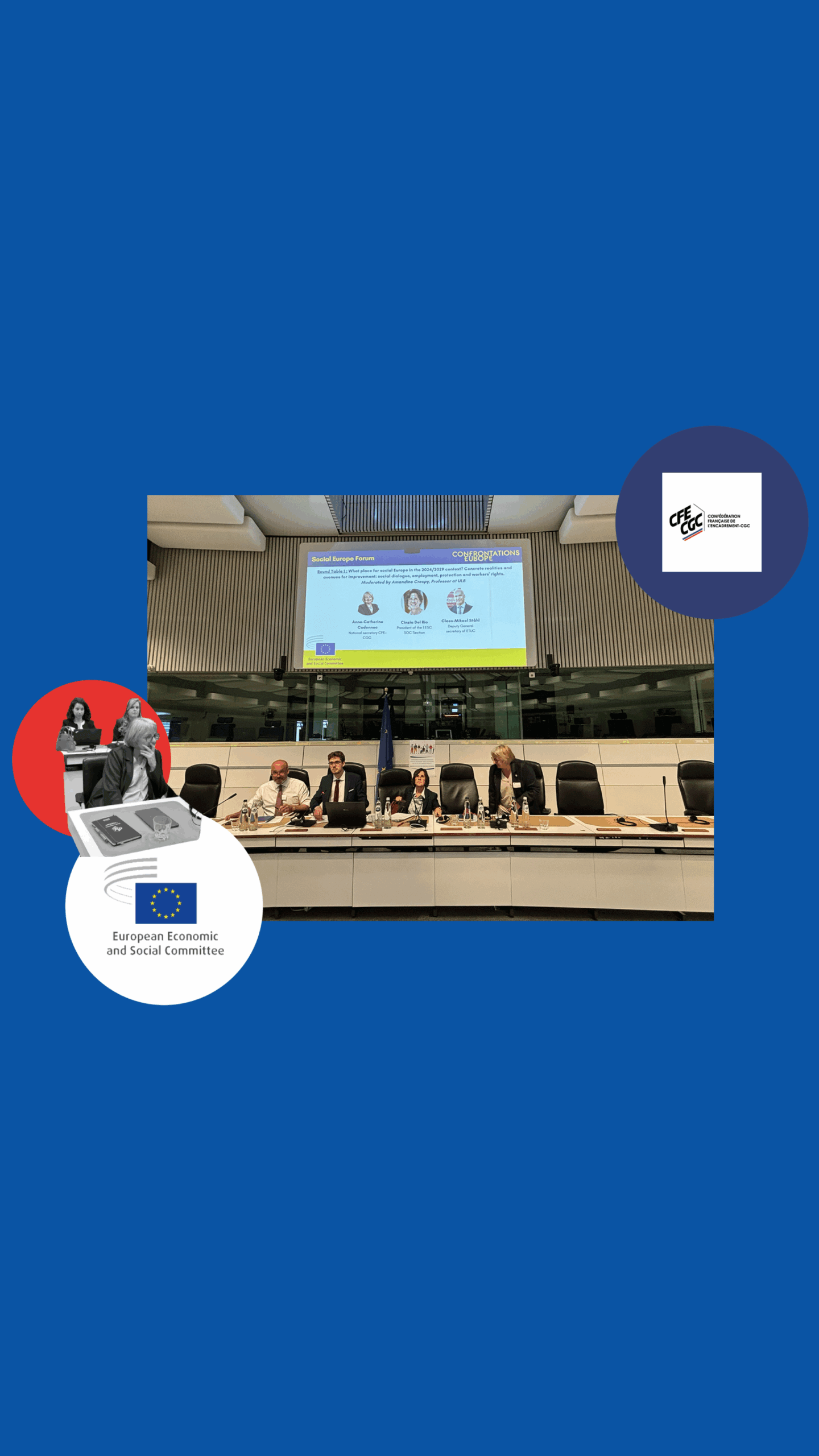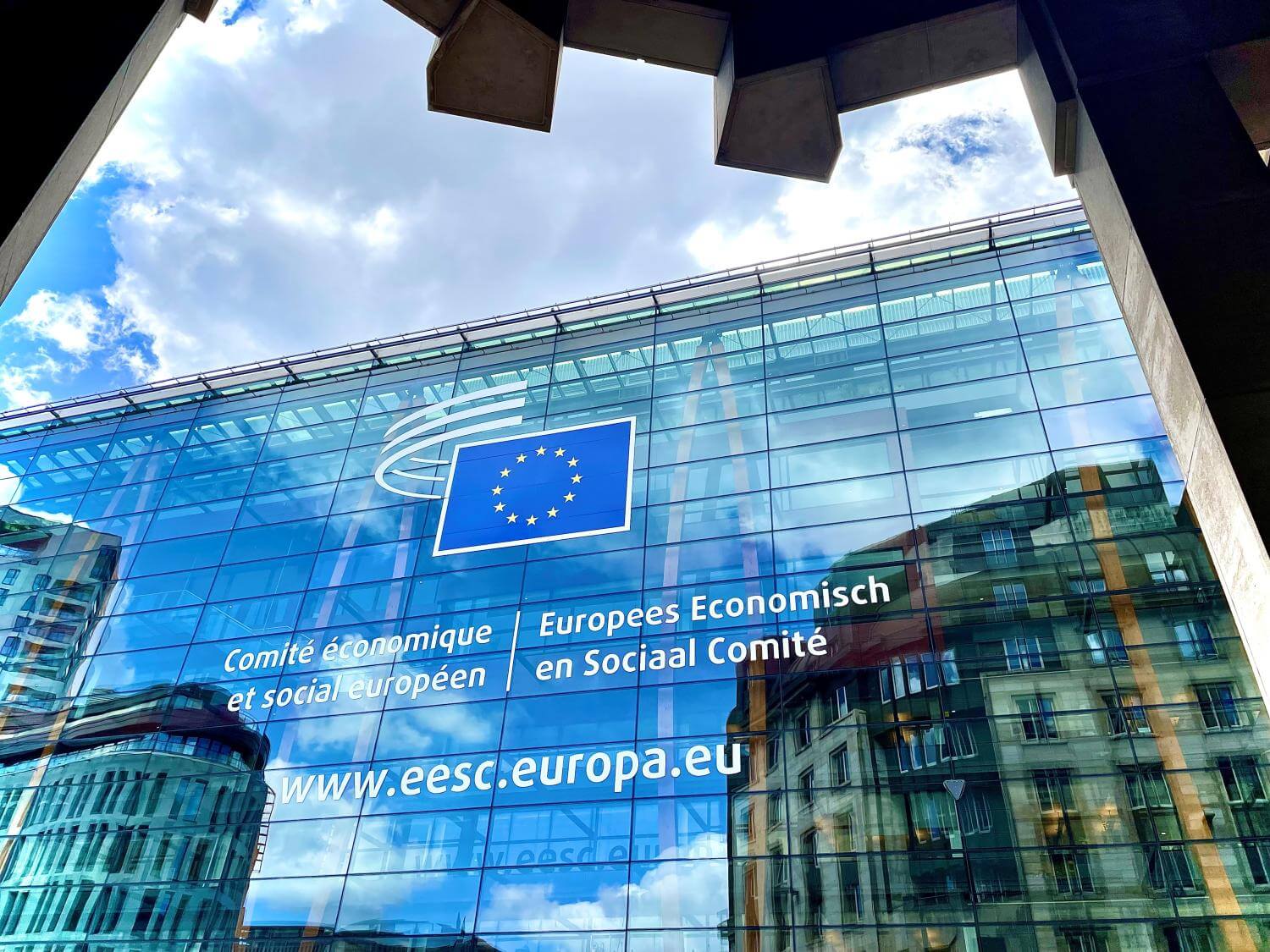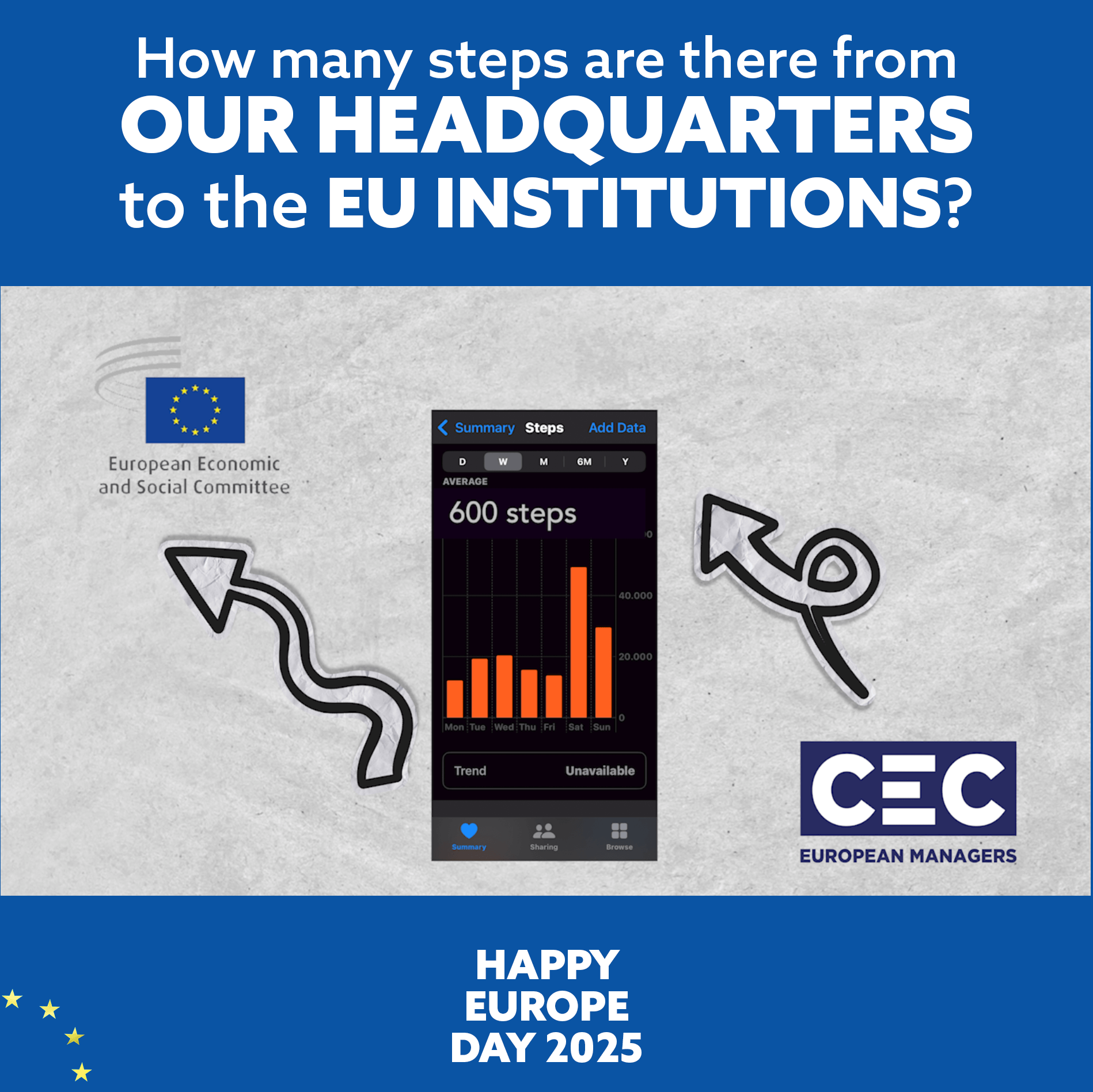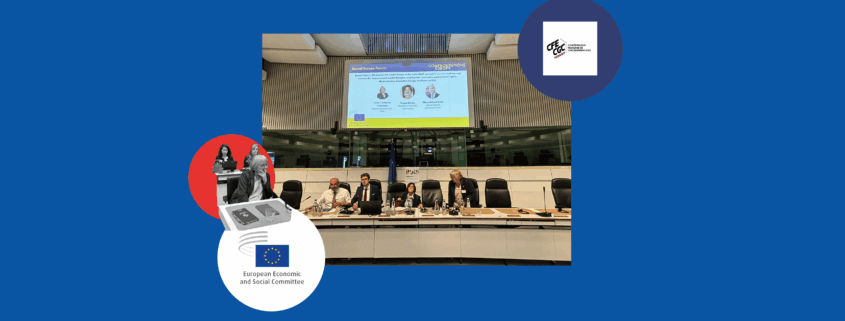“Citizens Have Been Waiting for More than a Single Market” – French Managers Speak Out at EESC Forum
The Social Europe Forum, held two days ago (12 May 2025) at the European Economic and Social Committee (EESC) in Brussels, gathered key European stakeholders to reflect on the future of the EU’s social model in light of current political, economic, and technological challenges.
Among the contributors was Anne-Catherine Cudennec, who spoke on behalf of CFE-CGC, the French member organisation of CEC European Managers.
The forum, hosted at the EESC in Brussels, addressed urgent questions about the sustainability of the European social model.
The focus of the Social Europe Forum at the EESC was on safeguarding social rights and promoting dialogue at a time of overlapping crises and growing ideological divides.
Defending the Social Foundations of Europe
Aurel Laurențiu Plosceanu, Vice President of the EESC, opened the event by acknowledging the generational gap in crisis experience among today’s European leaders: “All commissioners were born after World War II. We do not have experience in crisis management.” He listed the succession of crises—from COVID-19 to geopolitical instability—and warned about deepening economic disparities.
He called for confidence in Europe’s ability to act: “Social cohesion, the rule of law, democracy, economic resilience, and inclusive growth are key.”
Plosceanu proposed the creation of an EU investment fund with a strong social responsibility, warning that Europe’s green and energy transitions must not become “elite projects.”
He further stressed the importance of ensuring that “in the face of rapid digitalisation and artificial intelligence, human control is preserved and workers’ rights are upheld.”

Echoing the Vision of Jacques Delors
Michel Derdevet, President of the think tank Confrontations Europe, invoked the legacy of former Commission President Jacques Delors: “He saw the EU as a tool for both economic competitiveness and social justice.” Derdevet insisted that “social inclusion is essential for EU development and unity.”
Social Dialogue in a Changing Europe
During the first roundtable, moderated by Professor Amandine Crespy from Université Libre de Bruxelles – ULB, participants discussed how social dialogue could adapt to the new EU priorities, including competitiveness, simplification, and defence.
Claes-Mikael Ståhl, Deputy Secretary General of the European Trade Union Confederation, remarked:
“The game has changed dramatically. During COVID, we talked about the return of the state and the value of essential workers. But now, with the rise of the far right and governments drifting away from EU values, we must push harder for social dialogue.”
He noted ongoing efforts with employers on a new social dialogue work programme, stressing that “it’s not that we cannot do things.”

The French Perspective: Sovereignty, Social Rights, and Democracy
Representing CFE-CGC, Anne-Catherine Cudennec offered the perspective of French managers.
“The story of Europe is a social one. Citizens have been waiting for more than a single market—they have been waiting for a Social Europe.”
Cudennec warned about the loss of European sovereignty in strategic sectors, citing the French chemical industry’s partial acquisition by foreign powers:
“Sovereignty is also about social rights and control over strategic companies.”
She also raised concerns about youth engagement with democratic values, citing Eurobarometer data: “Among 16- to 20-year-olds, education ranks high, but democracy and the rule of law are the lowest priorities. Maybe they don’t see democracy as being under threat. But as social partners, we have a double responsibility.”
On the future of work, she emphasised the need for continuous training, particularly in response to artificial intelligence: “We need to invest in skills and lifelong learning, also for managers.”
Social Rights, Training and Economic Governance
Cinzia Del Rio, President of the EESC Section for Employment, Social Affairs and Citizenship (SOC) section, voiced concern over the diminishing scope of EU social policy:
“The Competitiveness Compass shows that social policy remains mostly in the hands of national governments.”
She warned that key targets from the EU’s previous action plan—including poverty reduction and the reskilling of older workers—were unlikely to be met:
“We don’t need new targets. We need a new impetus in social dialogue.”
She echoed concerns about deregulation disguised as simplification: “We are seeing freedom for companies and burdens for workers. We cannot trade different freedoms.”
Del Rio further stressed:
“Skills are a social right. Today, if you are not reskilled, you are out of the labour market.”
Margaux Meidinger, a member of the EU Social Dialogue Committee, supported her remarks: “I agree with Anne-Catherine—social dialogue needs resources and support to deliver.”
Julien Rousselon, Social Affairs Adviser at the French Permanent Representation to the EU, also participated in the debate, providing a governmental lens on how France is navigating the intersection of competitiveness and social solidarity in European policymaking.
The event highlighted the ongoing relevance of CEC European Managers as a bridge between employers and workers.
Through its French affiliate, CFE-CGC, the organisation reminded EU policymakers that the success of Europe’s green, digital, or geopolitical transitions rests on training leaders and managers and a strong foundation of social rights, industrial sovereignty, and democratic engagement.
The voices heard at the Social Europe Forum reinforced one key message: Europe’s economic future must remain deeply intertwined with its social contract.
What is the EESC?
The European Economic and Social Committee (EESC) is the EU’s official advisory body, which includes representatives from employers, trade unions, and various civil society organisations.
It provides a structured platform for these socio-economic and occupational interest groups to influence EU policymaking formally.
Established by the Treaty of Rome in 1957 (Art. 13), the EESC advises the European Parliament, the Council, and the Commission on various legislative and policy issues.
Its members—employers, workers, and other stakeholders—are nominated by Member States and appointed by the Council for renewable five-year terms.
Why Managers Should Care about EESC?
For managers, the EESC is a critical institution whose voice can shape the direction of the EU’s social and economic policy.
Through CEC European Managers, which holds official EESC representation, leaders and managers can advocate for balanced, forward-looking policies on employment, skills, innovation, and leadership, which will directly impact their roles and responsibilities.
CEC European Managers’ headquarters are just 600 steps (less than 5 minutes away) from the European Economic Social Committee.




